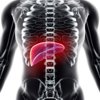Fritextsökning
Artiklar per år
Innehållstyper
-

Ancient DNA provides new insights – “The immune system lost its job”
Ancient bone remains from our ancestors have provided new insights into the prevalence of multiple sclerosis. By looking back in time, researchers can provide a possible explanation for why the disease is more prevalent in northern Europe.
-

Uppgift: Sanofi planerar avknoppning av sina receptfria läkemedel
Den franska läkemedelsjätten Sanofi uppges ha bett ett antal banker att pitcha för att delta i att hantera företagets planerade avknoppning av sin OTC-verksamhet, enligt källor till Bloomberg News.
-

KI’s freezer fiasco investigated: A chain of failures
A chain of combined technical and organisational shortcomings caused the freezer breakdown at the Karolinska Institute during the Christmas holidays, destroying more than 47,000 samples. This was the conclusion of an internal investigation.
-

List: The coolest names in biotech
Hairy beasts, volcanic material and space strolling stand out on a US list of the best biotech company names, and on a list of the coolest names for pharmaceuticals, a Swedish, or at least Swedish-British, drug came out on top.
-

Nocebo – the evil twin that makes you feel worse
The placebo effect is well known in healthcare, but not so its opposite: nocebo. “The effect is small, but it can have major repercussions,” says Uppsala researcher Charlotte Blease, co-author of a book on the phenomenon.
-

The Covid pandemic accelerated the development of cancer vaccine
The Covid pandemic gave a major boost to the vaccine field. The Danish biotech company Expres2ion Biotechnologies, which is developing a vaccine against breast cancer, testifies to this.
-

Assignment: Facilitate the retention of foreign researchers
A newly appointed public inquiry is to develop measures to make attracting and retaining foreign doctoral students and researchers in Sweden easier.
-

Beta-blockers are often given unnecessarily, a study finds – “This will affect future practice”
Patients who have suffered a minor heart attack do not benefit from beta-blockers, according to a major new study that may change guidelines for cardiac care.
-

Recipharm divests five Swedish plants
Swedish contract manufacturer Recipharm is selling its facilities in Solna, Strängnäs, Höganäs, Karlskoga and Uppsala OTC Development to US private equity company Blue Wolf Capital Partners.
-

Settlement of cancer allegations against blockbuster drug
French pharmaceutical company Sanofi has reached a principal agreement in the US on around 4,000 of the cases in which its now withdrawn blockbuster heartburn drug Zantac allegedly had caused cancer.
-

Ny chefredaktör på Läkartidningen
Åsa Uhlin har utsetts till ny chefredaktör på Läkartidningen efter avgående Pär Sandell.
-

Stamceller förökade sig snabbt efter rymdfärd
Att vistas en längre tid i rymden tycks ha fått stamceller att dela på sig snabbare. Det rapporterar forskare vid Uppsala universitet.
-

The life science strategy – what the industry wants
The process of updating the national life science strategy has begun at the government’s life science office. According to industry stakeholders, Sweden’s competitiveness, the accessibility of health data and the integration of innovation in healthcare are some of the points that are essential to review.
-

”We need compatibility“
Penilla Gunther, founder of Fokus Patient and chair of the European Patient Safety Foundation, hopes that the forthcoming life science strategy will focus on efficient and secure management of patient data and equal access to medicines.
-

Anna Törner: ”Orphan Designation – the "petite robe noire" of drug development”
It is easy to cling to various regulatory incentives, like orphan designation, and other expedited pathways, without understanding what they truly mean or whether they are indeed right (or wrong) for the current project, Anna Törner writes in a column.
-

Specific proposals and targets top the universities’ desired priorities
What are the universities’ expectations for the update of the national life science strategy? Life Science Sweden posed the question to representatives from Karolinska Institutet and Sahlgrenska Academy.
-

Nytt miljardförvärv stärker Astra Zeneca inom radiofarmaka
Astra Zeneca satsar inom radioaktiva läkemedel genom att köpa Fusion Pharmaceuticals för upp till 2,4 miljarder dollar, motsvarande drygt 25 miljarder kronor.
-

Första behandlingen mot vanlig leversjukdom godkänd i USA
Efter många år av utveckling har nu för första gången en behandling mot fettlever med leverskada godkänts av det amerikanska läkemedelsverket FDA.
-

KI-forskare fälls för oredlighet efter felaktiga bilder
Fyra forskare med koppling till Karolinska institutet fälls för oredlighet i forskning, enligt ett beslut från NPOF, Nämnden för prövning av oredlighet i forskning.
-

Venom from the deathstalker carries radiopharmaceuticals to the brain
In order to target cancerous brain tumours with radionuclides, the problematic blood-brain barrier must first be crossed. Life Science Sweden has visited a KI researcher who is trialling an unusual approach ‒ using scorpion venom.
-

Samuel Lagercrantz: ”Will the Swedish life science strategy be updated with precision?”
What will the Swedish government focus on in the life science strategy that is being updated? And what should be prioritized in the strategy? Life Science Sweden's editor-in-chief Samuel Lagercrantz highlights three areas.
-

“What is important is to create an overview and understanding from different perspectives”
Scientist Jochen Schwenk analyses blood proteins using proteomics to improve our understanding of disease and health. This year, he is moderating the Lab & Diagnostics of the Future event.
-

From Valneva to the CEO position at NorthX – “I saw it as a great opportunity”
A new cell therapy for leukaemia, a vaccine in tablet form against cholera, and a proprietary mRNA line with the potential capacity to supply the entire Nordic region with vaccines during a future pandemic. These are some of the projects underway
-

Marie Gårdmark: ”Interchangeable biological medicines – soon in a pharmacy near you?”
”Generic competition is an effective way to push down drug prices, but it has not worked equally well for biosimilars. Biosimilars require more time to gain market share compared to generics, and new biosimilars do not always lead to lower prices” writes